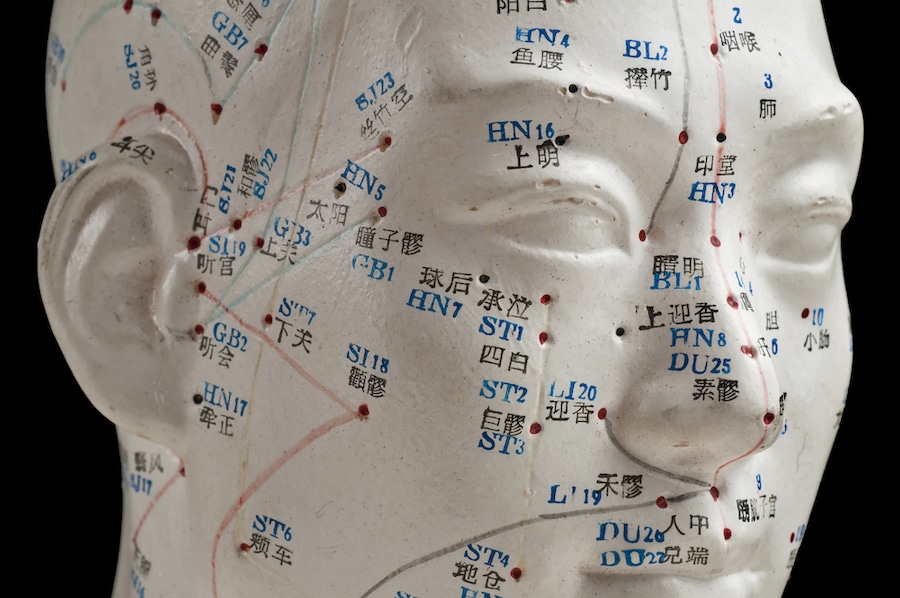The Trade Between Alternative Methods and Medication
Unlike acute pain, chronic pain has a lasting impact on individuals for 3 months or more. This results in a host of challenges, reduced quality of life, and high correlation with elevated healthcare costs. As such, the medical community has dedicated time and resources into determining the most effective methods of solving the problem.
While for the last 2 decades opioids were considered the gold standard in the United States for relieving pain, it was uncovered that these medications were less effective and had more adverse effects than originally known.
This leaves individuals with chronic pain wanting to know if more options exist.
In the article below, we will explain some of the key differences between opioids and acupuncture, meant to give you a starting point to understand each modality and discuss them with your healthcare provider.
Main Differences
The differences between acupuncture and opioids are many, but many return to a central point: acupuncture is integrative and opioids are pharmaceutical.
Get Back Your Normal Life Again
As pain specialists, we can guarantee that we are more than qualified in alleviating your pain and treating your condition.
Simply put, this means that opioids aim to use an external substance to lessen your experience of pain, whereas acupuncture encourages the body’s natural ability to heal itself. This leads to each system having incredibly different methods of operation, side effects, and recommended uses.
Opioids
As a western pharmaceutical, opioids work by binding to the opioid receptors in the brain. While this dulls sensation, these medications are generally only effective against certain types of pain.
Through randomized controlled trials, studies have shown that opioids are most effective against pain resulting from damage to the muscle tissue. While this makes opioids a strong candidate for a post-operative painkiller, it makes it a less likely choice for long term use.
Furthermore, opioids have a history of causing physical dependency and even addition when used for long periods of time. This has resulted in the recurring opioid crisis, leaving many professionals to choose different options for pain relief and management.
Acupuncture
On the other end of the spectrum, Acupuncture treatment is a form of ancient integrative medicine which takes a mind-body-spirit approach to a variety of pain conditions.
In chinese medicine, there is a concept called chi. This is the energy that sustains a person. As chi flows through the body, it follows a set of pathways known as meridians. Each meridian corresponds with a specific region of the body and its associated organs.
As such, the premise of acupuncture is that though manipulating the flow of chi within the body, you are able to reduce and clear pain-causing blockages.
In Western terminology, we can imagine these energy pathways as nerve points. By manipulating the nerves, an individual can experience relief.
Acupuncture Treatment for Pain
Your first appointment will involve taking an inventory of your pain and discussing a treatment plan that might work best for you. This includes determining your treatment goals and how much continuing maintenance you might need.
The appointments themselves from there on out are generally short. Your practitioner will carefully place thin needles along the particular meridians and pressure points which are most likely to alleviate your symptoms, sometimes manipulating the needles through heat or light electrical signals.
The needles stay in place for approximately 20 minutes with 6-8 treatments total being common for most individuals.
Choosing the Right Pain Management for You
Sometimes medications are necessary and sometimes they are not. However, as medical professionals work on solving the opioid epidemic while helping patients regain their quality of life, acupuncture may just be the right method for you to try.
The Arizona Pain and Spine Institute boasts a full team of seasoned professionals who specialize in minimally invasive and clinically proven modalities to help manage both long and short-term pain. We make a point to stay on the cutting edge of new technologies to help reduce pain and increase quality of life. Contact us at (480) 986-7246 for more information on the service we provide, find which doctor is right for you, and get on the path to discussing your next treatment options.

